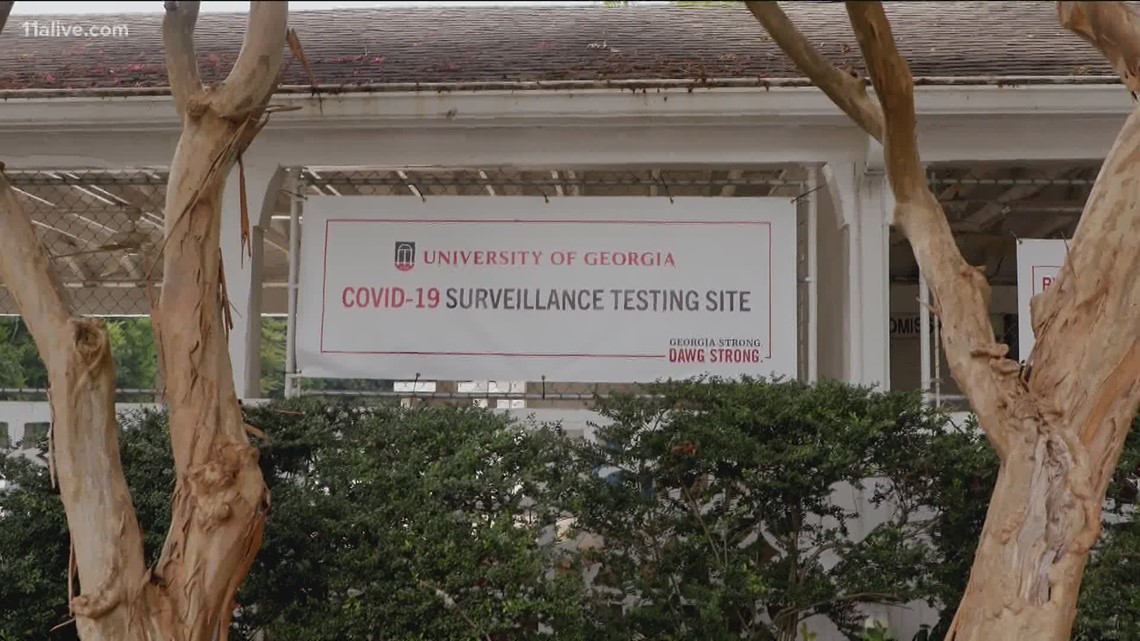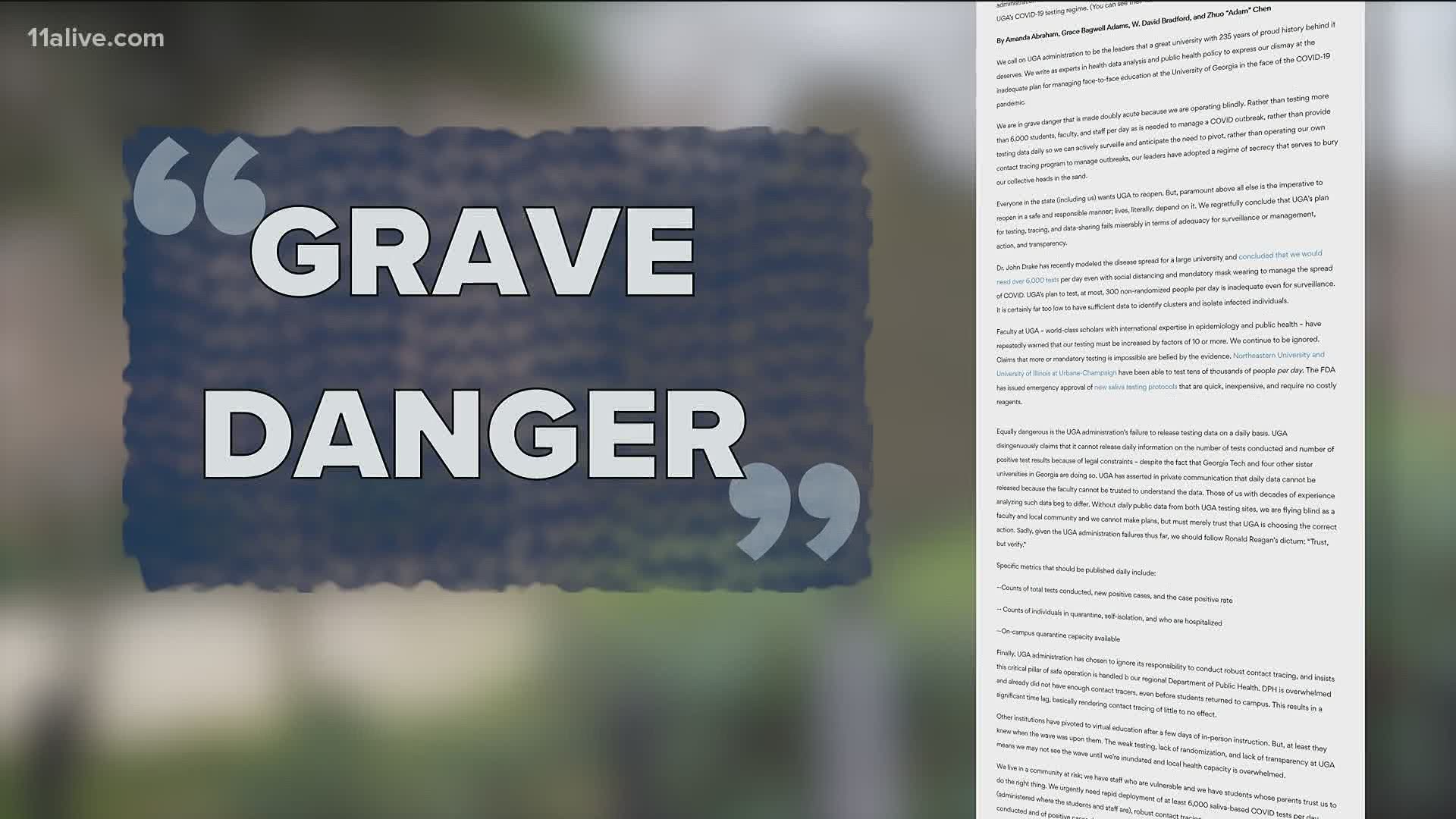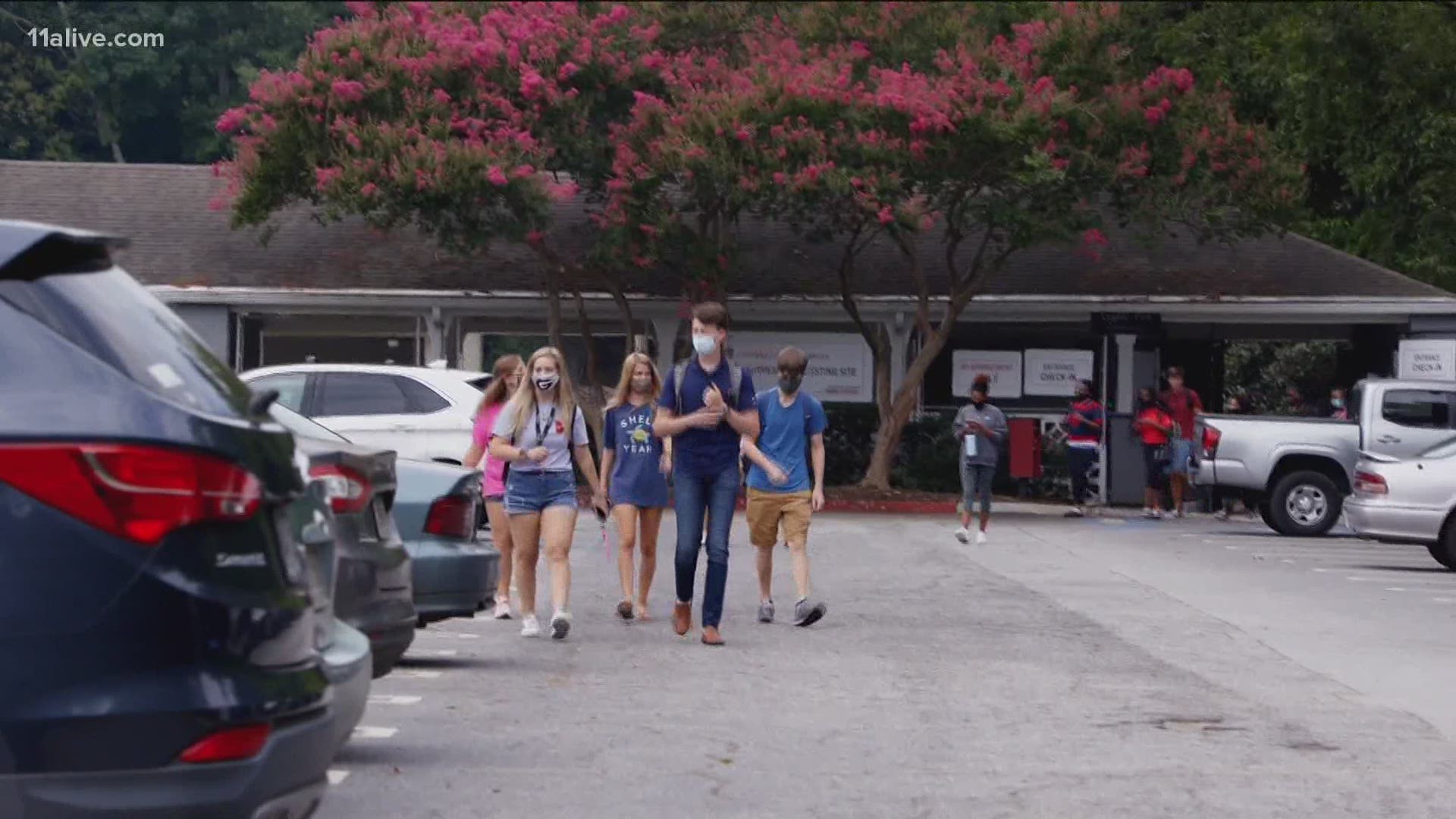ATHENS, Ga. — By now, you’ve seen some of the social media videos online showing dozens of college students closely gathered at parties across the country. Most of them are not wearing masks or socially distanced, resulting in hundreds of infections and universities moving classes to virtual instruction.
Four health professors at the University of Georgia are pleading with the school to do more to prevent it from happening in Athens.
This past weekend, they wrote a scathing letter, saying the university’s COVID-19 policies and lack of testing puts the campus in “grave danger.”
“It’s a foolish plan and it doesn’t take into account human nature. Our plans have to assume that our students are going to be doing that. It’s silly to make a plan otherwise,” said David Bradford, a chair and professor in the Department of Public Administration and Policy.


The other professors include Amanda Abraham, Ph.D., associate professor at the Department of Public Administration and Policy; Grace Bagwell Adams, Ph.D., associate professor, Department of Health Policy and Management and Zhuo “Adam” Chen, Ph.D., associate professor, Department of Health Policy and Management.
"The weak testing, lack of randomization, and lack of transparency at UGA means we may not see the wave until we’re inundated and local health capacity is overwhelmed,” said the letter by the professors.
According to an analysis by the New York Times, at least 26,000 university students and staff have contracted COVID-19 so far this semester across the country. The real number is likely higher because not all schools disclose testing data.
Right now, UGA has the capacity to test about 400 random asymptomatic students and staff a day. It has plans to increase that number to 2,000 in the coming months. Bradford says it should be closer to 6,000.
“We aren’t doing nearly enough to help manage the disease,” said Bradford.
Dr. Michelle Nuss is the UGA medical school campus dean, helping lead the school’s COVID response. She says the school’s testing model was initially a pilot program, which appears to have worked.
Nuss says the school uses the PCR-based test, touted as the most effective on the market. She says the students and staff who request tests receive their results in 24 to 36 hours, and because testing is voluntary, Nuss suspects it would be challenging to compel thousands of people on campus to get a test.
"It's a delicate balance and I think this is what we put in our message to the medical oversite group of not wanting to pull supplies from those that are sick, we’ve got to have PPE, we’ve got to swabs, we’ve got to have FDA approval,” said Nuss.
So far this semester, an estimated 241 students and staff have tested positive. The majority of those people got their tests off-campus. UGA has created an app and online portal called ‘DawgCheck’ to help schedule tests, track symptoms and report positive cases.
UGA posts its testing numbers on a weekly basis online. Bradford says, it should be posted every day.
He’s also concerned UGA has not disclosed where positive COVID students will be isolated and how many rooms are available.
"This is a situation where secrecy is not anybody’s friend here and we need to know where these students are,” said Bradford. “There’s a big difference of having 200 spaces available for students if they are diagnosed versus having two spaces left. We have no idea where we are right now.”
Nuss admits she’s not sure how many rooms UGA has available for students to quarantine. About 32,000 students live on campus or in rental properties around the school.
"I don't know how many we have, but I feel like we have an adequate amount. They get meals delivered, they do telehealth with their primary care doctor over at the university health center to check on them,” said Nuss. “Most universities have set aside anywhere from two to six percent of their don number.”
Dean Nuss and Dr. Bradford both agree students and staff are largely wearing masks and social distancing in class and on campus.
If a COVID-19 hot spot does happen, Dean Nuss says they would likely deploy 10,000 saliva-based tests the school just ordered. Those results would take about 72 hours or less.


